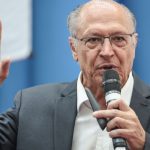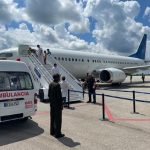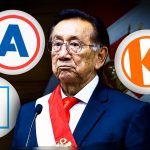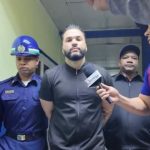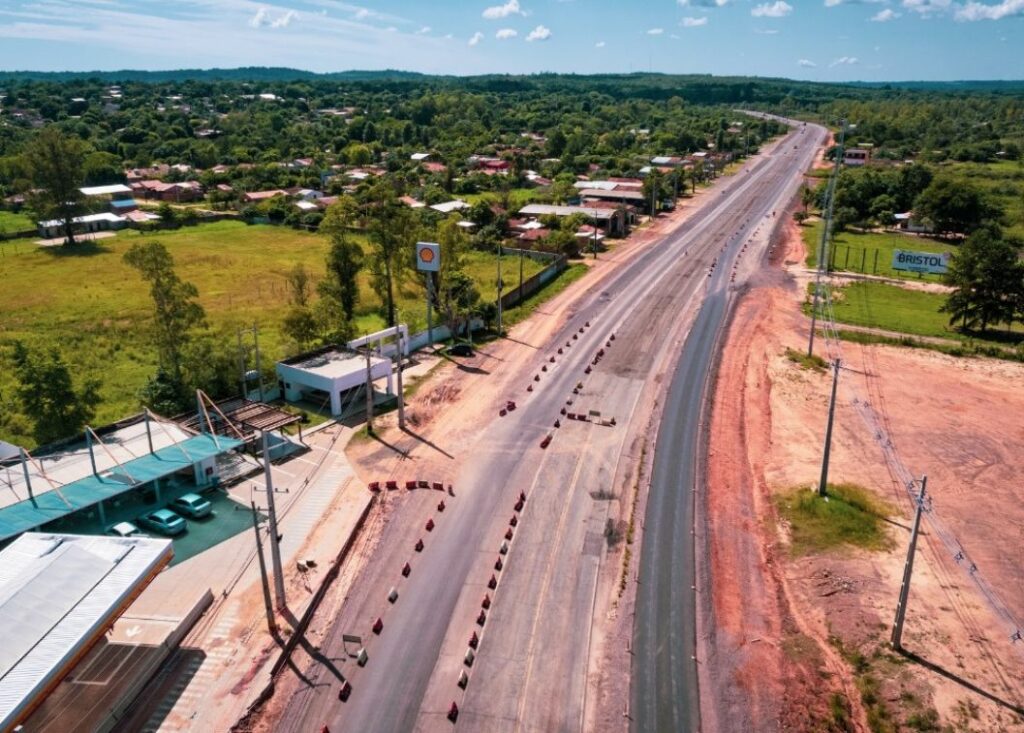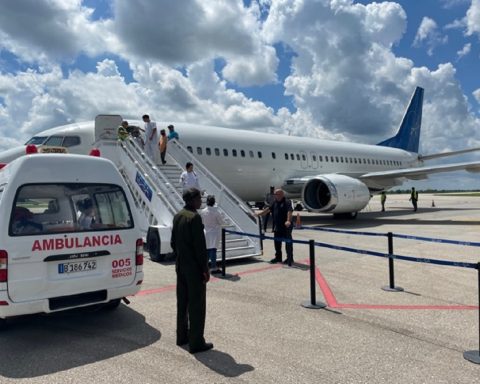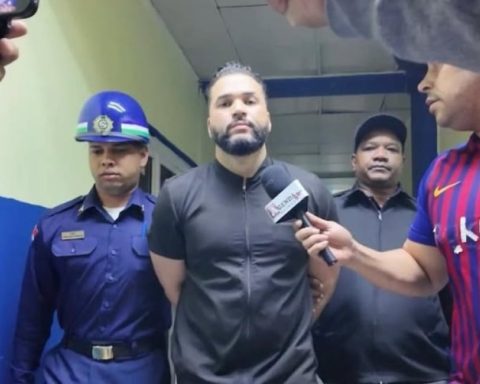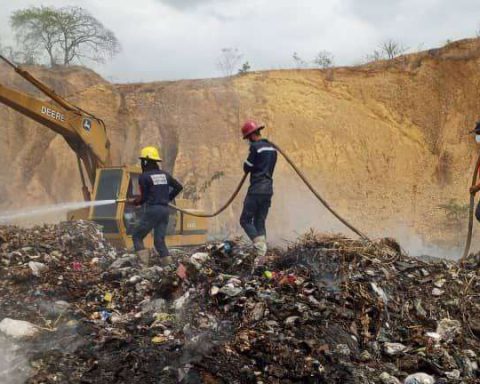The death of Álvaro Conrado Avendañofather of Álvaro Conrado Dávila —murdered in the civic protests of 2018—, has emotionally impacted Vilma Núñez, president of Cenidh, who considers that the opponent died under “permanent torture”, due to the lack of justice in the case of the execution of his 15-year-old son.
For the founder and president of the Nicaraguan Center for Human Rights (Cenidh), the memory of Conrado Avendaño will be “one more element of the fight” in the demand for justice, truth, justice, reparation and non-repetition, which is promoted by the Mothers Association de Abril (AMA), an institution that was chaired by Conrado.
In an interview on the show This week, Núñez emphasizes that the repression and harassment of the regime of Daniel Ortega and Rosario Murillo, will not be able to stop the demand for justice. “I am sure that mothers will not be silenced, relatives will not be silenced (…) A mother will never be calm as long as she knows that the murder of her son remains unpunished. That cry of Alvarito (Conrado) will never shut up”.
The human rights defender also talks about the silence of the hierarchy of the Catholic Church before the imprisonment of eleven priestsamong them, Monsignor Rolando Álvarez, Bishop of the Diocese of Matagalpa.
The death of Don Álvaro Conrado this Friday, four years and nine months after the murder of his son Alvarito Conrado in April 2018, how do you see this tragedy as a human rights defender?
It has been a very strong emotional blow because a series of elements and situations come together. It is a person who dies, practically, under permanent torture, due to the lack of justice and other harassment, which the relatives (of those murdered in April) have been victims of.
It is one more element of struggle. (Álvaro Conrado) headed the most emblematic of the organizations, which we are still promoting and which we are not going to get tired of and which we must continue fighting for. All those feelings are mixed up in you, and it is really serious.
In addition to Don Álvaro, two other fathers and mothers of those murdered in 2018 have died, without seeing justice; Mr. Ángel Gaona, in 2021, and Mrs. Josefa Narváez, mother of Wendel Narváez, in 2022, how long can justice take under a dictatorship like Nicaragua?
It is not to diminish the magnitude of the tragedy and cruelty that is experienced here, but these struggles throughout history and in all parts of the world have been very long. The struggle waged, for example, by the Mothers of the Plaza de Mayo (in Argentina) continues and this began in 1976; You see the case of (José Efraín) Río Montt (in Guatemala), thirty-odd years of struggle by human rights organizations that finally gave justice, and many times they do not see justice in their own country.
The death of Don Ángel and Mrs. Narváez has to make us think that we have to prepare ourselves emotionally to fight for a long time. In the fight for human rights, solutions are not given in a day, unfortunately.
Some of the relatives of the victims have been forced to take refuge, some in Costa Rica, in the United States, in Europe, even the mother of Alvarito Conrado, Mrs. Lizeth Dávila, is a refugee in Switzerland, who protects the relatives of the victims in Nicaragua?
Luckily, to put it in some way, there is an asylum, a refuge, democratic countries that welcome and, in some way, can keep people there and find ways to provide them with the means of survival, the means for them to continue fighting.
One of the demands is, precisely, truth, justice, reparation and non-repetition. The repressive States and these cruel dictatorships are the ones that have the obligation to make financial reparations. However, the damage caused to a family member, the murder of a loved one, is irreparable.
Silence of the hierarchy of the Catholic Church
Cenidh has called on the hierarchy of the Catholic Church and the Vatican for their silence in the face of the persecution against Monsignor Rolando Álvarez and other religious who are being sentenced in fabricated political trials. Can the regime silence the demand for truth and justice of the victims, of the relatives of the victims of the repression?
No, I believe that this is the most genuine, authentic and persistent struggle, they will definitely be able to momentarily stop the mobilizations, they will be able to do anything to the extreme of the example that you are mentioning to me, which is completely inexplicable.
I take this opportunity to reiterate to the high hierarchy that they have to state their position, they have to contribute, precisely, to ensuring that this repression against the Church, against Monsignor Álvarez, against all the priests who are imprisoned and persecuted does not continue. That his silence does not lead them to be accomplices in some way, the word is hard, but yes, silence definitely leads to that.
I am sure that the mothers will not be silenced, the relatives will not be silenced. I think that this is the challenge that human rights organizations, human rights defenders, and society in general have, to continue accompanying these struggles of mothers, not to turn a deaf ear, not to see her go by and say: “he forgot, Or it’s calm.” No, I believe that a mother will never be calm as long as she knows that the murder of her son remains unpunished. That cry from Alvarito (Conrado) will never stop.
The Mothers of April Association, headed by Mr. Álvaro Conrado, has said that they are going to continue demanding truth and justice, but what about the rest of society that is afraid, is this a cause that falls exclusively on the relatives of the victims of repression or if it concerns the whole of society?
This is a fight for all of us, in the broadest sense of the word. It cannot be that an act as cruel and perverse as the murder of an innocent person, is the object of a claim only from her close relative, from her mother in the first instance. This is a responsibility and a duty that corresponds to all Nicaraguans, who want a free Nicaragua, who want our youth not to continue dying, who we want them to stop harassing and making life more painful for the elderly, for people who they are definitely living their last days, everyone has the right to live in peace. We must all promote this fight.
Let’s not leave mothers alone with their pain. I want, not delusionally, to give a message of hope, it is true that nobody wants to risk being beaten up in the street, being harassed at home, having their things destroyed or stolen, but let us definitely not lower our decision, no Let’s lower our thinking and find how to continue promoting and transferring that feeling of struggle, which I think we keep alive.
UN Human Rights Commission
What are your expectations regarding the incidence that the UN Commission on Human Rights, which will present its report next March, may have in international bodies?
Many organizations, especially at the national level, have been in permanent relationship with the experts or with the technicians who are gathering all the information that this report will contain, which we hope will be conclusive. This report is presented for what purpose, not only with one more situation, but with the Human Rights Council extending the mandate (of the Commission), which we are thinking would be for two more years.
Once they have more compiled and verified information, they can submit a report that moves the Human Rights Council (of the UN) to the possibilities of promoting a solution to the problem of Nicaragua, more concrete actions.
In the international arena we are always thinking that we are already being left aside, that we are already off the agenda, but the truth is that the instances of the United Nations —the Council and the office of the High Commissioner— and all instances of the Inter-American System — the Commission and the Inter-American Court – have placed all the instruments available to the system against barbarism, against the Nicaraguan dictatorship.
This commission has the mandate to identify the individual responsibilities in the chain of command of the repression. Does it have the capacity to reach that level of identification when it has not had the opportunity to enter Nicaragua?
The one that entered was the GIEI and later the Office of the High Commissioner also entered at first, but this group of experts, as an organized body, did not have the opportunity to enter. Since it was going to be created, the government (of Ortega and Murillo) rejected it, ignored itOr and he said that he was never going to let them in, that he was never going to recognize your work. That is why many instances have dedicated ourselves to trying to fill this gap, due to the lack of presence, due to the lack of response, due to the lack of attention of the Government to the requirements of the group. They will be able to count on more elements to make all the recommendations.







